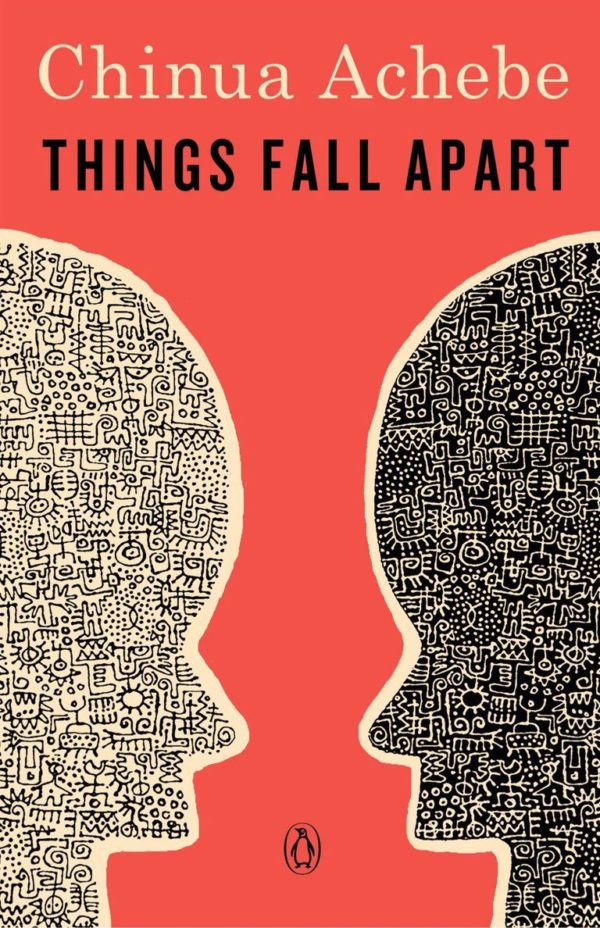Things Fall Apart

I first heard about Things Fall Apart in high school through Quizbowl. I remember not knowing anything about it other than the main character (Okonkwo) and the author (Chinua Achebe). Nevertheless, those two pieces of information were enough to get me points on several occasions since the novel comes up quite often.
Eight years later, I have finally read Things Fall Apart. I finished it a while ago now, but I have kept pushing off writing this review. I have some conflicting feelings about the novel, and I am still trying to wrap my head around certain facets of the book’s message. Nevertheless, I believe that the novel is rightfully considered a classic of African literature, and I enjoyed it enough that I read the whole thing within two days.
Things Fall Apart follows the life of Okonkwo, an Ibo yam farmer living in pre-colonial Nigeria. Okonkwo heads a large family, and he is well-respected in his clan for his strength and incredible work ethic. The first part of the novel describes his life before any contact with Europe. In the second part of the novel, European colonial and cultural forces appear, and the rest of the novel describes the subjugation of African culture to the overwhelming power of European imperialism.
In my opinion, Things Fall Apart shines if you view it as primarily a sociological study of African culture that is layered on top of a narrative about Okonkwo. This is particularly true of the “slice of life” style of the novel’s first and longest part, which lacks a strong plot. Personally, these descriptions of “mundane” life engrossed me, but I could see it becoming boring for some readers. Achebe uses Okonkwo as a vehicle to describe intricately various aspects of African society, from its festivals to social mobility to religious practices to family structures. For example, I was impressed by the following passage from the first chapter of the book. It is simple; nevertheless, I felt that it smoothly ad incorporated an illustration of the use of language in Ibo culture.
Having spoken plainly so far, Okoye said the next half a dozen sentences in proverbs. Among the Ibo the art of conversation is regarded very highly, and proverbs are the palm-oil with which words are eaten. Okoye was a great talker and he spoke for a long time, skirting round the subject and then hitting it finally.
Achebe’s depiction of Ibo culture is generally neutral. He displays both the culture’s beauties—such as the joyous and community-uniting New Yam Festival—and its blemishes—such as the abuse and abandonment of children deemed to be cursed.
Okonkwo is also an intriguing and well-written character. He is a successful self-made man, yet clearly very flawed. At times, I found him quite unlikeable. He is cruel and physically abusive towards his family; “his wives, especially the youngest, lived in perpetual fear of his fiery temper, and so did his little children.” Nevertheless, Achebe humanizes Okonkwo by skillfully illustrating how Okonkwo’s life and upbringing—especially his resentment of his father—shaped his personality and beliefs.
Although I believe he is well-written, I have mixed feelings about the use of Okonkwo as the main character. I can understand the link between Okonkwo’s upbringing and cruelty, but I do not believe they absolve him. By attempting to humanize Okonkwo and build the reader’s sympathy for him (for example, highlighting his feelings of repentance after a beating or showing his displays of love for his family), the novel could be seen as excusing or normalizing Okonkwo’s abuse. However, I ultimately believe that Achebe purposefully creates parallels between Ibo culture and Okonkwo. Neither is perfect, but that also makes them feel very real—making their conflict and domination by the Europeans in the last two parts of the novel a true tragedy.
Rating: 4/5